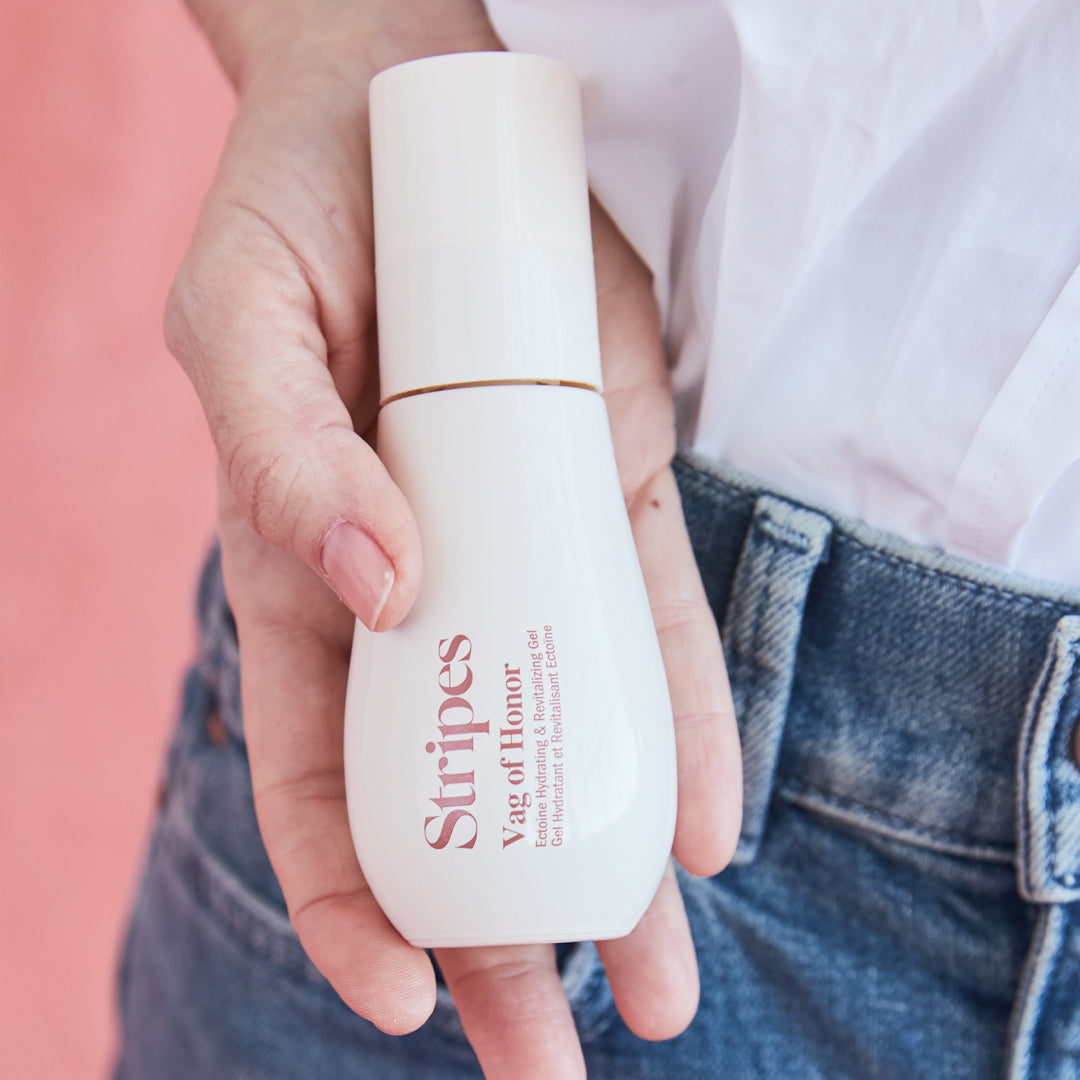We get it. You’re in the moment, things are heating up, and then…dryness. So you think, “Coconut oil!” or maybe “a little olive oil can’t hurt, right?”
Here’s the truth: when it comes to alternatives to lube, not all slick substances are created equal — and your vagina deserves way better than your salad dressing.
Let’s talk about the “natural” lube myth
It’s easy to assume that if something’s natural, it’s safe everywhere. But as Stripes Advisory Board Member Cindy Meston, Ph.D, a professor of clinical psychology and Director of the Sexual Psychophysiology Laboratory at the University of Texas at Austin, puts it:
“If it wasn’t designed for genitals, it doesn’t belong there. Household oils like coconut or olive oil may feel slippery, but they can disrupt vaginal pH, trap bacteria, and damage condoms — raising infection risk. The safest options are medical-grade lubricants that are pH-balanced, condom-safe, and clinically tested. Your vagina deserves better than pantry products!”
Translation: Your body isn’t a DIY project. Even “healthy” oils can actually unbalance your natural environment, setting the stage for irritation, infections, or worse.
Why your vagina needs the real deal
A good lubricant isn’t just about glide — it’s about biology. Dr. Meston explains that formulated lubricants are engineered to match your vaginal pH and protect delicate tissue. “Olive oil and other ‘natural’ substitutes can actually pull water out of vaginal cells,” she says. “In clinical trials, water- and silicone-based lubricants significantly improved comfort and pleasure — something no kitchen oil has ever done!”
In other words: what feels like moisture in the moment can actually leave you drier (and more irritated) later.
The best (and safest) alternatives to lube
If you’re out of your favorite bottle, here’s what you can safely reach for instead — and what to avoid:
Water-based lubricants
Gentle, pH-balanced, easy to clean, and condom-safe. Great for sensitive skin or frequent use.
Silicone-based lubricants
Long-lasting and silky-smooth, perfect for menopause dryness or water play. Also safe for latex condoms.
Hybrid lubricants (water + silicone)
Best of both worlds — long glide without stickiness.
Oil-based lubricants
A product like Oh My Glide Intimate Play Oil contains coconut oil, but it is pH balanced for vaginal use.

Alternatives to lube you should avoid
Olive oil, baby oil, petroleum jelly, or any “natural” kitchen or beauty product don’t make great alternatives to lube. They can mess with vaginal flora, degrade condoms, and increase infection risk.
Why “pH-balanced” actually matters
Think of your vagina as a finely tuned ecosystem — like a self-cleaning oven, but cooler. When you use something off-label (like oil or lotion), you throw off that balance. The result? Burning, itching, or unwanted guests (hello, yeast infections).
Medical-grade lubricants are designed to keep your vagina’s pH steady, your tissues hydrated, and your pleasure front and center.
So your best alternative to lube…is a different type of lube
When it comes to alternatives to lube, your best bet isn’t a kitchen shortcut — it’s a product designed for you.
Dr. Meston says it best: “Your vagina deserves better than pantry products.”
So skip the olive oil and reach for a pH-balanced lubricant that actually loves your body back.










